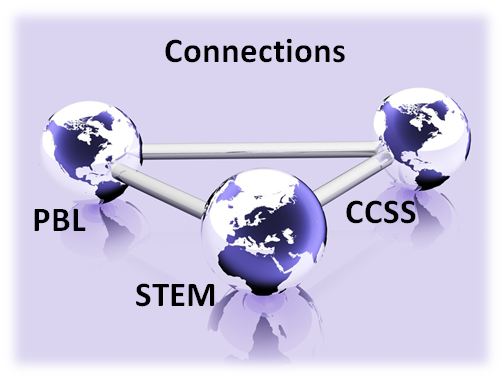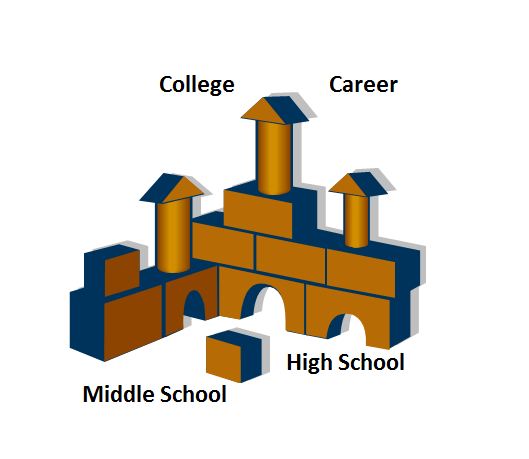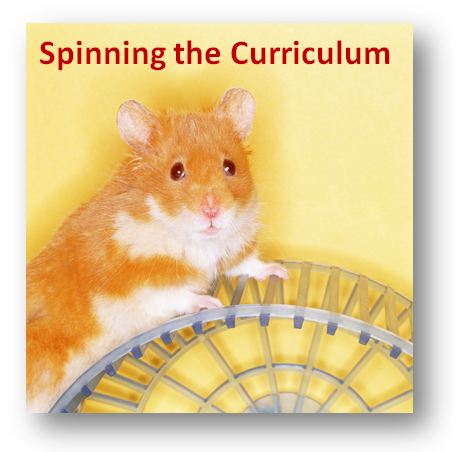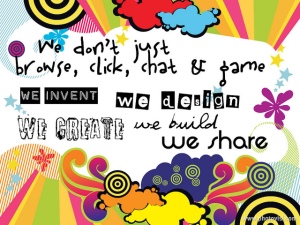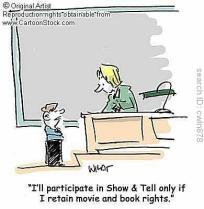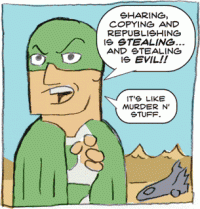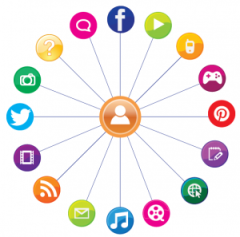Category Archives: Uncategorized
Making Math Relevant
Part 1…. Connecting It All…. A STEM, PBL, Common Core Series… A Goldmine of Resources
21 st Century Educational Technology and Learning
Welcome to a series that is must read for any PBL or STEM educator. It will include information to reflect and build upon as you consider both PBL and STEM. Best of all, it will finish with over 50 amazing resources you will want to investigate. First, to ensure you do not miss one of these valuable posts or other resources covering PBL, Digital Curriculum, Web 2.0, STEM, 21st century learning, and technology integration please sign up for 21centuryedtech by email or RSS. As always, I invite you to follow me on twitter (@mjgormans). Please give this post a retweet and pass it on. Have a great week – Michael Gorman (21centuryedtech)
Quick Note Please feel free to join me for a free webinar this Wednesday at (4/24) at 3:00 PM EDT entitled STEM PBL in Middle School. This is being presented…
View original post 1,273 more words
Part 2… 14 Secondary Ideas To Build With…. A STEM, PBL, Common Core Series… A Goldmine of Resources
21 st Century Educational Technology and Learning
Welcome to a series that is must read for any PBL or STEM educator. It will include information to reflect and build upon as you consider both PBL and STEM. Best of all, it will finish with over 50 amazing resources you will want to investigate. First, to ensure you do not miss one of these valuable posts or other resources covering PBL, Digital Curriculum, Web 2.0, STEM, 21st century learning, and technology integration please sign up for 21centuryedtech by email or RSS. As always, I invite you to follow me on twitter (@mjgormans). Please give this post a retweet and pass it on. Have a great week – Michael Gorman (21centuryedtech)
Quick Note I have been getting a lot of requests asking if I will make a visit to your school, organization, or conference. Please be aware that I am available to…
View original post 1,095 more words
Part 3…17 Challenges and Competitions… A STEM, PBL, Common Core Series…Goldmine of Resources
21 st Century Educational Technology and Learning
Welcome to a series that is must read for any PBL or STEM educator. It will include information to reflect and build upon as you consider both PBL and STEM. Best of all, it will finish with over 50 amazing resources you will want to investigate. First, to ensure you do not miss one of these valuable posts or other resources covering PBL, Digital Curriculum, Web 2.0, STEM, 21st century learning, and technology integration please sign up for 21centuryedtech by email or RSS. As always, I invite you to follow me on twitter (@mjgormans). Please give this post a retweet and pass it on. Have a great week – Michael Gorman (21centuryedtech)
Quick Note I have been getting a lot of requests asking if I will make a visit to your school, organization, or conference. Please be aware that I am available to…
View original post 924 more words
Websites for Students…and more!
Mathematics, Learning and Technology
One of the most popular posts on this blog is Top >10 Mathematics Websites. It struck me that it might be useful to think about my top recommendations for students; once again using some categories as well as individual sites gives me the excuse to mention more than 10! So for your students:
Top >10 Mathematics Websites for Students
Back to the teachers!
I have mentioned TED-Ed before with its collection of Mathematics videos, note the feature now offered by TED-Ed to ‘find and flip’ which allows you to use a video and turn it into a lesson; see ‘Flip This Video’.
Looking at some videos, it struck me that something like Gaurav Tekriwal’s The magic of Vedic Math would be ideal to tinker with! (These ‘tricks’ can make ideal starters, I have linked to some further videos on this page on Number on Mathematics Starters.)
On…
View original post 19 more words
Ahhh!!! Here it is…
MY WEBQUEST!
I almost forgot about this last post. And can I just say I’m so glad this class is over. I can finally sleep! I’m super detail oriented and this WebQuest brought out and exhausted that part of me. 🙂 I’m happy with the way it came out and hope you enjoy my fast-paced tour.
Pheww… I Made It!
Learning Outcomes
Analyze, learn & use current technology related to learning & education
During this class I was introduced to many exciting software and online resources to integrate into the classroom. I enjoyed learning how to use some of them while at the same time completing assignments. It’s the best way to learn—for me anyway. I found some I liked more than others either because they were more user friendly (for students) or because I found I could do more with them than others. I really like Prezi. I will never use Microsoft PowerPoint again for my own presentations, and I think students would much rather use this tool as well. Cloudware is amazing and all the software that uses this technology is invaluable in the classroom. I’d heard of Google Docs but never ventured to use it because I didn’t see a need to. I found it very useful in completing the team assignments. I think these and the other not mentioned will help make school assignments much more engaging for students.
Resourcefully, consistently & actively participate in various individual, small group and large group assignments
I’d never taken an online class before this one, and I found it very interactive and interpersonal. I was afraid I’d be left to my own devices for the most part, but the way the class was set up (Rock Group, Book Club, weekly online meets) helped put my mind at ease. I wasn’t going at it alone. The assignments helped me get to know other classmates better, gain input from them, and allowed me to give feedback. Being able to collaborate on certain assignments was extremely helpful. WAY TO GO ROCK GROUP 3 and BOOK CLUB 1!
Practice thoughtful, cognitive reflection about the application and impact of technology in education and culture using a course blog, course textbook topics and project development
Blogs have had a definite impact on culture—everyone and anyone has the ability to publish their thoughts; and technology has made this possible. Before this course I never thought about blogging for personal reasons much less thought it had educational benefits. But now I recognize it does. I found it exciting to read in our textbooks all the ways educators are using contemporary technology, combined with Project Based Learning, in their schools.
Develop several projects integrating a variety of new technologies. Selectively narrow to the tools you found the most valuable to be integrated in the culminating project based learning activity; a WebQuest
The Cell phone Fairy Tale, Copyright commercial, and WebQuest were/are challenging but exciting to do because I was using technologies new to me: Snag it, Google presentations, Go!Animate, Prezi. I have planned to include a couple of these in my WebQuest as well as integrate them into the WebQuest itself.
Research, design, construct, and demonstrate a personally and professionally meaningful educational WebQuest
I think spending so many hours trying to ‘perfect’ our final WebQuest project will prove rewarding,. It’s something we can implement in our classrooms and share with other educators.
I look forward to applying many of the resources we discovered in this course in my classroom; and since technology is ever evolving, I will continue to be on the lookout for cool, new, tech tools to use as well.
Copyright
I think that with the creation of Creative Commons intellectual property will become more and more accessible for use in the classroom and that copyright restrictions will have to be loosened or updated to “facilitate a climate of openness and sharing” in this new collaborative digital age. Like everything else, it makes sense for copyright laws to be aligned with the needs of this 21st century flat world.
I learned A LOT from this learning module. I knew teachers had restrictions when it came to using copyrighted material, but I didn’t realize the depth of the restrictions and how it all impacts the classroom. It’s unfortunate. I can only imagine what teachers could do if copyright laws weren’t so restrictive. I think, for the most part, that teachers don’t set out to take away the monetary value of copyrighted content and that they are neither trying to make a profit from its use, so copyright laws should have less restrictions for instructional purposes. I get that by copying certain material, worksheets for example, the creator loses out on profits and no one wants that. It’s difficult to wrap my head around it. Perhaps I am too naïve.
I think social networking and collaborative tools will make intellectual property and copyright law more difficult to enforce. A lot of people break ‘the law’ on a daily basis, and most get away with it. And with more people doing it, who’s going to keep track of all of the infringements? We only hope to become more aware and make others, especially our students, aware of the existence and importance of copyright laws and thereby avoid becoming law breakers and making our school districts liable. That being said, I appreciate the link to “Teaching Copyright.” I think it’s a lesson every teacher who expects their students to produce presentations should teach.
Here Comes Everybody
In the first chapter of his book Here Comes Everybody, Clay Shirkey retells the story of how Evan Guttmann used the technological tools available to him to self-assemble a group to put pressure on the NYPD to get his friend’s phone back after she had lost it in a taxi cab. Shirkey uses these events to show how connected we now are to each other; how socially visible we are to the world as we partake in the use of social media; how the use of these new tools has changed the way groups assemble and cooperate; and how our innate need to work in groups is amplified by these tools and in effect has changed our society. I think he is dead on.
I am on all four: Facebook, Instagram, Pinterest, and Twitter; and I’ve recently added Google+. My friends and family are on one or the other of these, so I had to be on all to keep in touch with them. I use Facebook, Instagram, and Twitter mostly for socializing and staying connected; Pinterest for sharing and discovering new interest; and Google+ for collaboration (love Hangout). Shirkey’s claim of social visibility does apply to me–I am more ‘socially visible’ online than I am in person, and I’m surely not the only one.
What impact will social media have on education? It already is having an impact on higher education. I came across something called MOOC (Massive Open Online Course). Delving deeper, I discovered that MOOCs are free online courses that major universities offer. It’s a new form of online learning. There could be up to 30,000 or more people taking these courses. And social media makes all this possible. Students are encouraged to blog their reflections, use Twitter, use Google chat for discussions, Google docs to share notes, and so on. I would venture to say that this could very well be the future of high school and possibly middle school education. It’s totally possible. The tools are there. And this could have an effect on how schools are run altogether. How much money would schools save if every student had access to the internet at home to be ‘schooled’ at home and still be able collaborate with other students taking that same course. Project based learning would fit well in this scenario. I believe there are still many more ways social media social media can impact the future of education and culture. We just have to wait and see.
